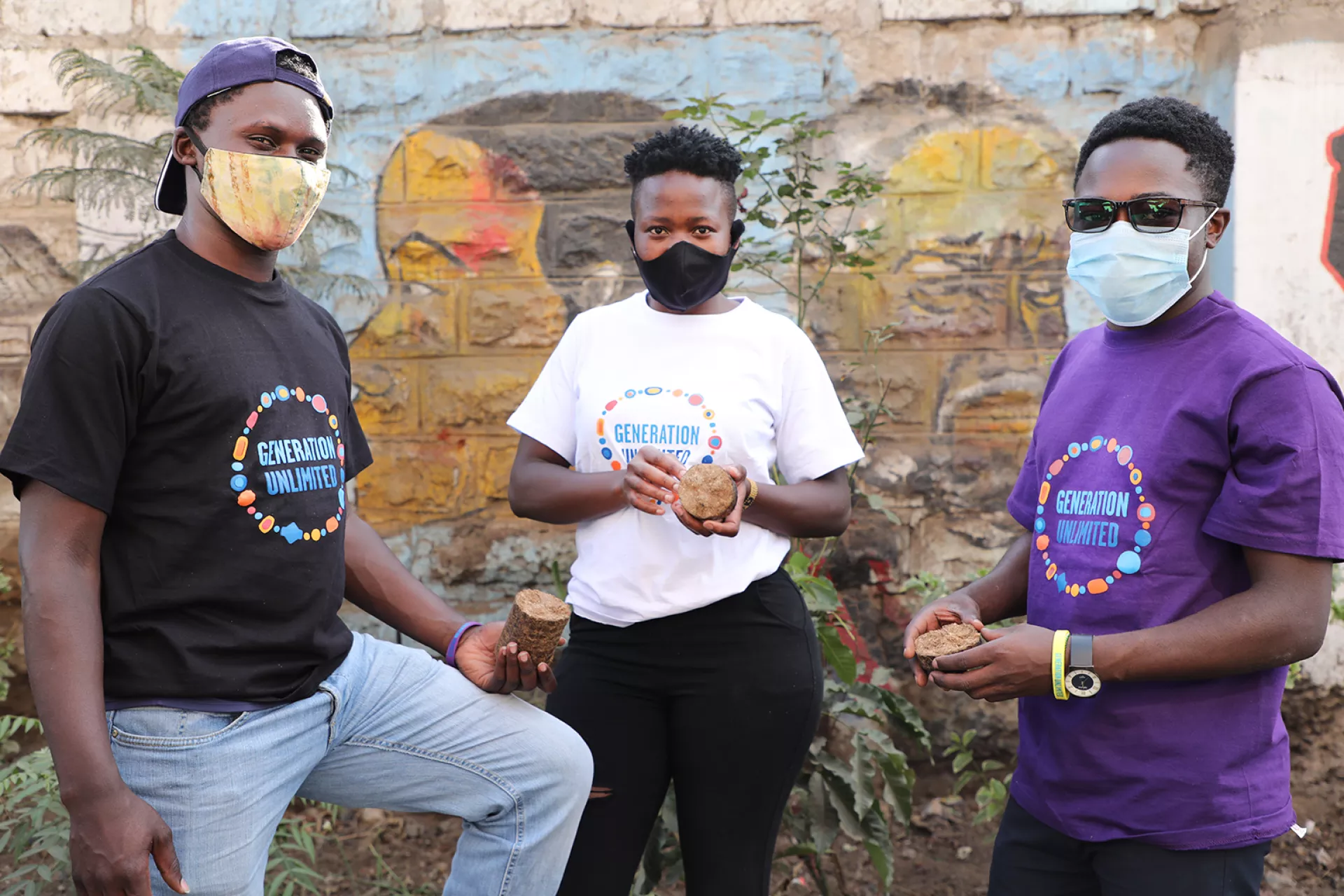GenU Kenya
In Kenya, GenU is helping to prepare today’s youth for the jobs of tomorrow, by expanding digital solutions that offer learning, skilling and employment opportunities.

About 900,000 new jobs are needed in Kenya each year to accommodate the growing working age population. GenU Kenya is helping to prepare today’s youth for the jobs of tomorrow, by expanding digital solutions that offer learning, skilling and employment opportunities.
GenU Kenya was launched in 2020 with a goal to expand digital solutions to connect 10 million young people to learning, skilling and employment opportunities by 2030. This echoes the vision for young people of President Uhuru Kenyatta, who was named global Champion of the Young People’s Agenda at the United Nations General Assembly in 2018.
Kenya’s youth population (aged 15–24 years) makes up nearly 30 per cent of the population. With 9 million young people set to enter the labour force from 2015 to 2025, about 900,000 new jobs are needed each year. This rise in the working age population could support greater productivity and stronger, more inclusive economic growth for Kenya – if young people’s potential is properly harnessed.
But the share of youth not in education, employment or training remains at nearly 20 per cent – pointing to a large number of economically inactive young people.
Through GenU, more than 1,000 Kenyan schools were connected to the internet in 2021, enabling online access for over 300,000 young people. Investments in STEAM skills, digital skilling and training, and financial services training are being prioritized. And connections between job seekers and potential employers are being enhanced.
How it works
GenU Kenya implements various key initiatives to pursue its aims. One such initiative is the BeGreen Africa Entrepreneurship Programme, developed by GenU, the Tony Elumelu Foundation and the IKEA Foundation. This builds on imaGen Ventures and Yoma and will create a pipeline of young green entrepreneurs while also supporting sustainable ventures and livelihoods.
GenU will also pilot the Global Youth Agripreneur Network. This e-agribusiness programme aims to give 5,000 young people – young women especially – the skills, tools and funding to become agripreneurs and strengthen agrifood systems. Drawing on the power of technology, and youth input, it will also support more than 1 million young
One of the youth-led solutions in Kenya in the area of scientific innovation is Green Project Initiative, named a global champion of the imaGen Ventures Youth Challenge. This social venture is working towards providing clean, accessible, reliable and affordable energy made from organic waste by unemployed youth in informal settlements.
Yoma’s WomenInTech Programme is also proving popular among girls and young women in Kenya.
“It’s not an easy ride for women to make a career in tech. The tech sector in Kenya is still quite male-dominated, and oftentimes programmes aimed directly at women simply fail to exist," says Maria, graduate of Yoma’s WomenInTech Programme, Kenya.
"And the offers that exist often only impart theoretical knowledge, but no practical skills. As a graduate of Yoma’s WomenInTech Programme, I particularly enjoyed its strong practical orientation as well as its peer-to-peer focus which included regular feedback loops on my learning progress. Working now towards being a coding instructor, I am already looking forward to pass on my knowledge to future (female) learners!"
Nearly one fifth of Kenya’s youth are not in education, employment or training. To promote positive change, GenU Kenya is prioritizing investment in skills for the future of work and in strengthening the links between job seekers and potential employers.
